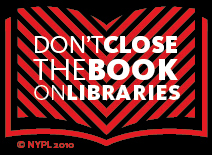So, here's something some of you may not know about me. I'm agnostic (on a good day). This is something I've felt for a long time, but only recently felt comfortable talking about with people (my mom, for instance) because I didn't know how that revelation would be received. And then, the more I thought about it, the more I realized that my agnosticism/atheism is just what I believe. It's not something that I need to hide or something of which I should be ashamed. The evidence shakes out for me. If there is a creator or a God of some kind, it's certainly not the one of earthly religions -although I love the stories. I love their messages (usually. Some of them are downright immoral if you really think about it). I love the symbolism inherent in religious myths.
Like Plato's Socrates talking to Eurypides about the "truth" in Hesiod's creation story, I feel that the truth is in the lesson, not the "history" of it. The lesson in Hesiod's story, by the way, is to avoid being tryannical and overly proud, otherwise you'll end up losing everything. Eurypides, on the other hand, believes that the poem represents literal truth -that various gods actually lost their thrones to their children until Zeus learned the lesson of sharing power and took over.
I'm with Plato/Socrates. It's interesting to me that the literal/figurative conversation about religion was going on so long ago, and that it continues today. I think it's a fascinating, deep idea and one that I still enjoy discussing. I know where my beliefs are, but I'm always reading more, trying to probe the ideas and make sure I've got my head and heart in the right place.
Which is why the book "The Year of Living Biblically" is so fascinating to me. A.J. Jacobs (author of "The Know-It-All" for anyone who's read that) spent a year living as closely as possible to the laws and rules in the Bible. It's a funny, unsettling, weird book. I'm not quite finished with it, but once I am expect a much more detailed review. Check it out though. It really is an extremely interesting read. Jacobs is the child of a secular, loosely Jewish family, and one of the most compelling parts of the book is his struggle with his own agnosticism as he delves very deeply into religious life.
Expect more in a few days.
The Reading Corner is a place where books of all genres are examined and reviewed. Comments, questions and disagreement are welcomed. Grab some coffee and a comfy chair and make yourself at home.
Sunday, June 28, 2009
The Year of Living Biblically
Labels:
books,
Plato,
religion,
Socrates,
The Year of Living Biblically
Subscribe to:
Post Comments (Atom)


No comments:
Post a Comment